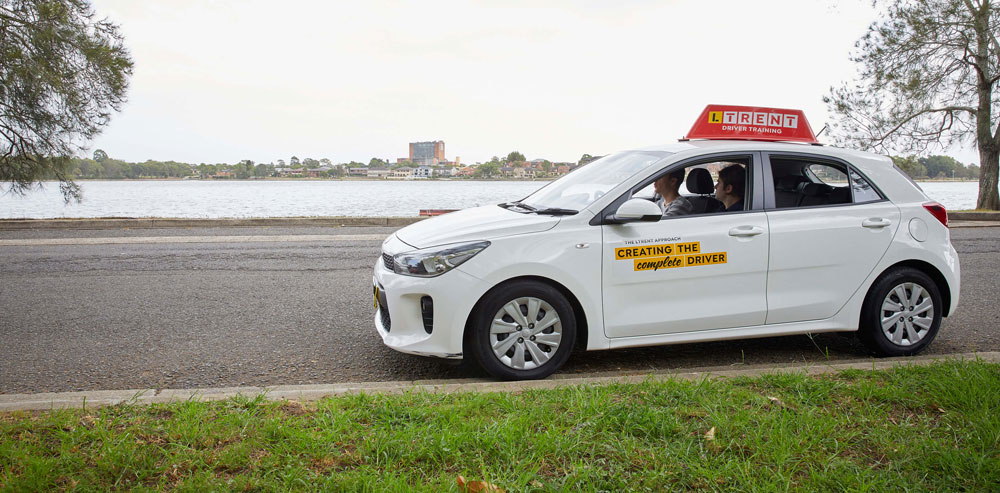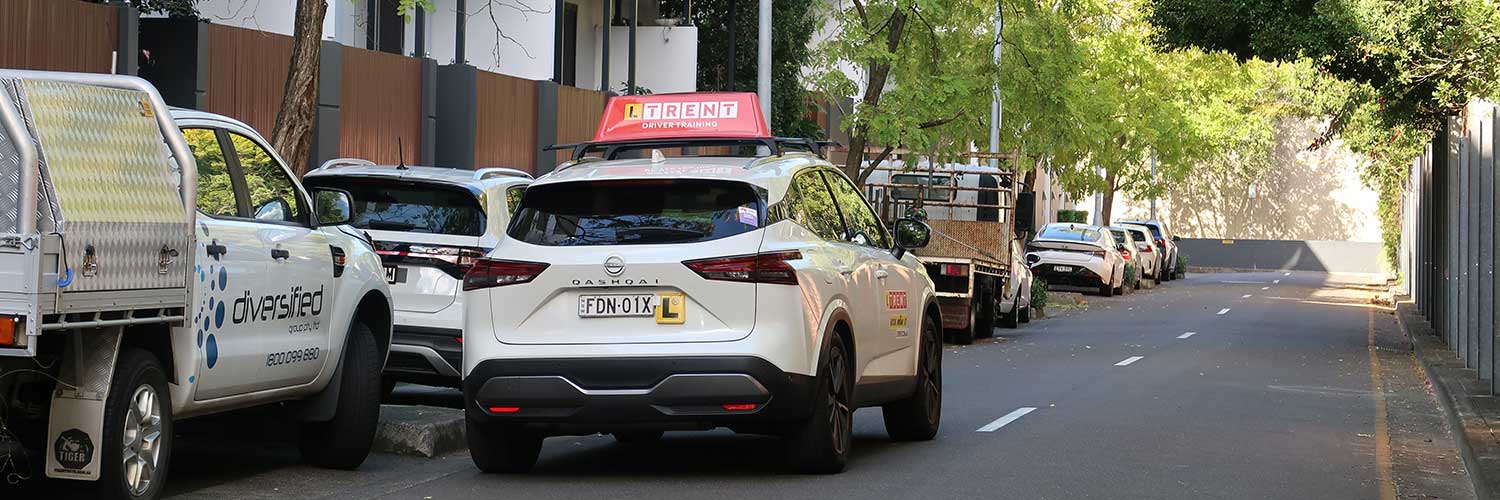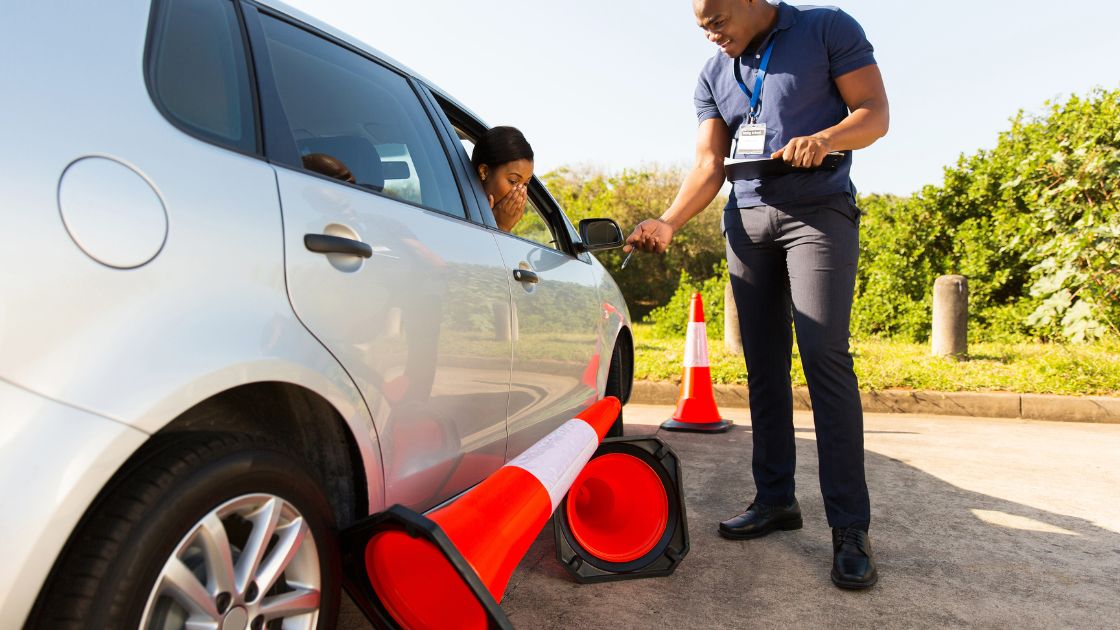A three point turn is an essential driving skill, especially for learner drivers preparing for their driving test. It allows you to turn your vehicle around on a narrow street when a U-turn isn’t possible. Whether you’ve taken a wrong turn, spotted parking on the other side of the road, or reached a dead end, mastering the 3 point turn is invaluable. This guide will help you understand the steps, safety considerations, and legal restrictions for performing this manoeuvre.
All posts by LTrent Driving School
Will I have to reverse park during the driving test?

Reverse or parallel parking is among the key areas you may be tested on during your practical driving test. The testing officer will evaluate your general road awareness and skills, including reverse parking. While excelling in the reverse parking driving test doesn’t automatically qualify you as a skilled driver, it can improve your overall score. Here’s everything you need to know about parallel parking for the NSW driving test.
The Kerbside Stop

Kerbside stopping is a fundamental skill for all drivers, especially for those preparing for their driving test in New South Wales (NSW). Whether you’re stopping to pick up or drop off passengers, or practising parallel kerbside parking, following the rules is essential. This guide explains what kerbside stopping entails, NSW-specific parking rules, and how to master this skill for the driving test.
Understanding U-Turn Rules In NSW
Performing a U-turn in New South Wales requires understanding specific road rules and restrictions to ensure safety and compliance. In this guide, we’ll cover the essentials for U-turns, including the regulations at traffic lights, road markings that make U-turns illegal, and best practices for safe driving. By following these rules, drivers can navigate U-turns responsibly and avoid penalties.
Should You Learn To Drive Manual Or Automatic

If you’re getting ready to learn to drive, you may be wondering if it’s better to start with a manual or automatic car. Both manual and automatic vehicles have unique advantages and disadvantages, and your choice can impact your overall driving experience as well as your flexibility in driving different vehicles in the future.
In this guide, we’ll break down the pros and cons of learning to drive in both types of cars and provide insights to help you decide which is the best fit for your needs. By the end, you’ll have a clearer understanding of whether you should learn in a manual or go for an automatic transmission.
How Many Hours Does It Take To Learn To Drive A Car

The thought of spending hours behind the wheel gaining the necessary experience to learn to drive can be daunting for many learner drivers. Attending a professional driving school is one of the best ways to ensure you feel comfortable and confident while completing the required hours.
The amount of time it takes to learn to drive a car varies depending on multiple factors, including whether you’re learning in a manual transmission or automatic transmission vehicle, your confidence level, and how frequently you practise. This guide will help break down the typical requirements and outline what you can expect when learning how to drive.
Why You Shouldn’t Fake Your Logbook Hours
Are you considering faking your learner logbook hours? It might seem like a tempting shortcut to get your driver licence faster, but it’s definitely not worth the risk. NSW, ACT, and QLD have strict rules in place to ensure that learner drivers are well-prepared for their practical driving test. If you’re caught, you could face serious consequences, including fines, delays in taking your RMS driving test, and even a suspension from the process altogether.
In this blog, we’ll explore why it’s crucial to complete your logbook hours honestly and highlight the benefits of gaining actual driving experience before your test.
Tips To Quickly Get Your Logbook Hours Up
Tips to Get Your Logbook Hours Up in NSW, ACT & QLD
Before taking your driving test, it’s essential to have completed the required amount of supervised driving hours for your state. While meeting these requirements can feel overwhelming, the goal is to ensure you’re fully prepared to be a safe and confident driver. The specific requirements vary slightly:
- NSW Learners: 120 logbook hours (including 20 night hours)
- ACT Learners: 100 logbook hours
- QLD Learners: 100 logbook hours (including 10 night hours)
To help you get your hours up, here are some tips that will not only make the process quicker and more efficient but also ensure you’re gaining valuable driving experience along the way.
What Are the RMS Driving Test Maneuvers?

After passing the Hazard Perception Test, the next step towards obtaining your NSW driver licence is the Roads and Maritime Services (RMS) driving test. This practical driving test is designed to assess your control of the vehicle, decision-making abilities, awareness of other road users, and overall safety on the road. With increasing road safety concerns, the RMS driving test has become more challenging. Knowing what to expect can help you prepare effectively and improve your chances of passing.
How Many Mistakes Are Allowed In The QLD Driving Test?
Embarking on the journey of becoming a licensed driver is both exciting and nerve-wracking. While learning to drive can be a thrilling experience, the anticipation of the driving test often brings its own set of jitters. If you’re preparing for your Queensland driving test, you may have heard various myths and stories about the test’s difficulty and what it entails. Let’s set the record straight.



